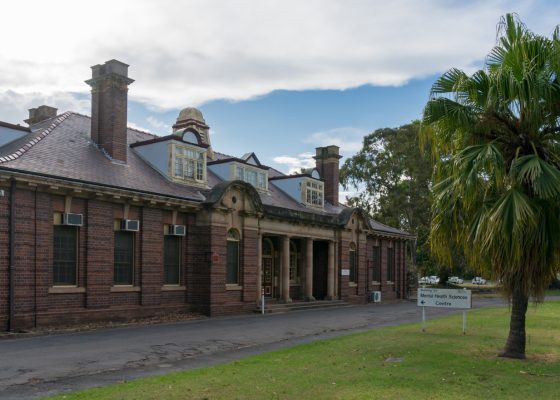Senate estimates for the DoHAC kicked off this morning. The big question of the day: Is Australia under the thumb of the ‘big daddy WHO’?
The federal government’s recent $277 million investment in Medicare urgent care clinics and the “big daddy WHO” were major pain points in today’s Senate Estimates hearing.
Opposition health spokesperson Senator Anne Ruston took aim at the federal government during today’s hearing over the additional funding promised to UCCs in the 2024/25 budget, that preceded a thorough evaluation of the evidence base for their benefit.
With the tentative use of a metaphor – which was interrupted by Ms Ruston’s decree that “that doesn’t often work well” – economist and Secretary of DoHAC Blair Comley outlined the metrics used to back up the decision, while acknowledging that the government was somewhat “building a plane and flying at the same time”.
“Self-reported data from patients say that around half would have attended an emergency department [without UCCs],” Mr Comley told the hearing.
“From my recollection, we think most of those patients would have been triaged to category four and five if they’d gone to the ED, which is the patient group that states and territories have been urging us to do everything we can to keep out [of EDs].
“A small number [of UCC presentations] have been referred to EDs, which I think is actually not a bad thing.
“If zero were referred, then it would suggest we were almost self-selecting too much.”
True to form, Ms Rushton was resistant to accepting the claims without hard data, which was promised on notice.
Deputy secretary of DoHAC’s primary and community care group Dr Liz Develin added that the government had commissioned a consultancy firm, Health Policy Analysis, to undertake a full evaluation of UCCs, pulling together federal, state and territory and MBS data.
The first interim report for the evaluation is due later this year, with the final report expected in 2026.
Dr Develin said broader metrics such as concrete evidence on the effect on EDs would need longer to pull together.
“We will need to look at trends over time to be able to provide [that] evidence, because you’re trying to produce a counterfactual about what would have happened.
“We need to look at all the types of presentation categories within an ED, compare those to the UCCs, think about contextual factors in the environment, the time of year, that will inform the evaluation.
“I think it would be very unwise of anyone to take ED data for one month and compare it to a UCC and say, ‘that’s the result’.
“That’s why we need to do an evaluation over several years.”
Senator Rushton pressed the group on whether there was data showing UCCs were capturing additional patients to those that would otherwise visit their GP, as UCCs and GP practices were often co-located.
“Some of the data that points to that is obviously the hours of operation are different to the general services provision [in general practice], the nature of the presentations in terms of the acute levels of injury and the demographics of the people who are attending,” said Dr Develin.
“Certainly, one in four of the presentations happen from 5pm … which is not standard for what you would see in data for a general primary care centre.
“We know that [presentations] are mostly acute injuries, acute illness and very small amounts of chronic conditions or other presentations which should be seen elsewhere.
“So that is certainly an indicator to us that we are seeing the right sorts of presentations because we consider them to be urgent.”
First assistant secretary for DoHAC’s mental health division Mark Roddam added that it was “impossible to compare” the services offered in a UCC and a general practice.
“In many instances, [general practices] are continuing to run a service and the UCC is supplementary to that,” Mr Roddam said.
“In addition to what might have been occurring where the practice was previously located, suddenly there would be additional providers of services.
“It’s a much bigger operation. It’s very, very difficult to compare.”
But Dr Develin was very clear that only UCC presentations, not visits to co-located GPs, were collated in government data on UCC presentations.
According to Dr Develin, the additional $227 million will include the development of the new clinics, transitioning of some existing state-based clinics to the national program, and additional funding particularly in outer areas to enhance current UCC services.
“The vast majority of the money goes into the operational cost,” she said.
“When we establish a clinic as a UCC a small amount of money is used, which is generally in the form of a capital grant, particularly if they need to upgrade the facility in terms of patient treatment rooms, which is relatively minimal compared to the operational costs themselves.”
Federal Minister for Finance Katy Gallagher promised to provide what additional data was available to “convince [Senator Rushton] on the merits of the Medicare urgent care clinics”, after a terse query over the basis for her opposition.
The morning session ended with a fiery exchange over covid conspiracy theories, with Senator Gerard Rennick throwing around accusations of “cover ups”, which he subsequently withdrew, after rejecting the claim that international expert opinion was clear that covid was not caused by a lab leak.
On the topic of covid, Senator Malcolm Roberts accused the federal health minister of implying that Australia could not respond to a future pandemic of its own accord, in the wake of last month’s World Health Assembly.
“Is he saying that our Australian health department is incapable of running a pandemic response in Australia all by itself without the big daddy World Health Organization telling us what to do?”
The DoHAC estimates hearings continue tomorrow.



